With over 80 miles of track to keep in service, the Very Large Array needs the skills of a railway crew. Here, the gravel ballast is combed around the rails.
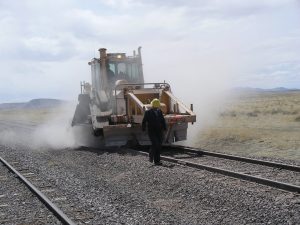
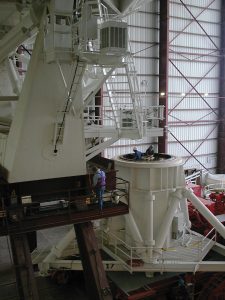
Inside an azimuth bearing of a VLA telescope
Over time, the azimuth bearing of a Very Large Array antenna needs cleaning out and repairing. Here, technicians work inside the base of a separated antenna to remove worn rollers. The upper, dish half of the antenna is braced on the dark platform at far left where another technician inspects it for wear and tear.
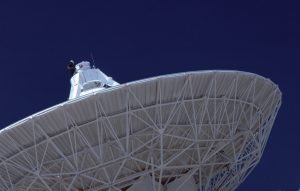
On top of VLA antenna
Engineers are required to wear safety harnesses when performing routine inspections on the VLA’s telescopes. Here we see an engineer attached to the antenna’s feed.
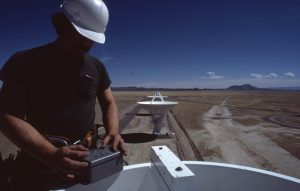
Routine Maintenance at 82-feet
A fear of heights is not an option if you work on the engineering team at the Very Large Array. Here, an engineer rides a forklift 82 feet to the top of a VLA antenna feed for a routine inspection.
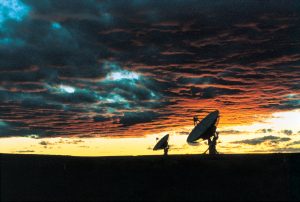
VLA’s Vibrant skies at dusk
Low clouds create a colorful sunset at the Very Large Array in New Mexico. A touch of blue sky is visible through the bottom of the red and orange clouds at dusk.
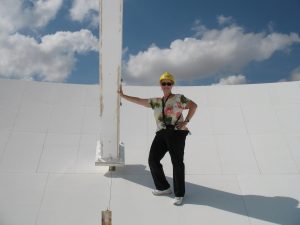
Education and the VLA
Judy Stanley, the Public Education Officer for the Very Large Array, stands on one of the 25-meter dishes. She develops and delivers tours of the VLA, creates STEM education program, and hosts events for the observatory in New Mexico.





